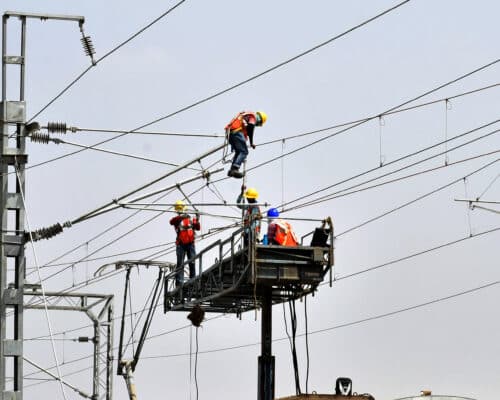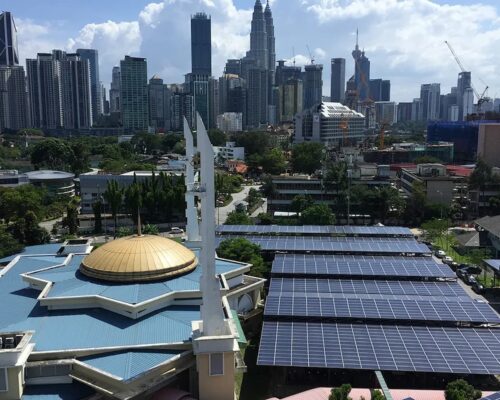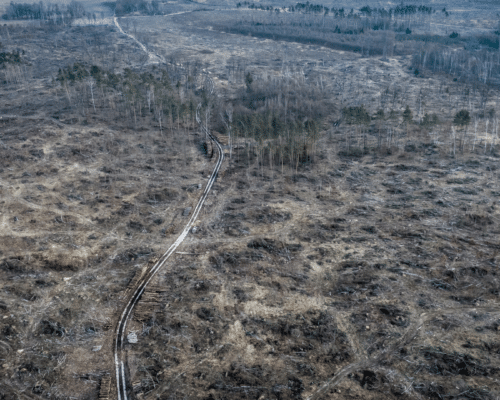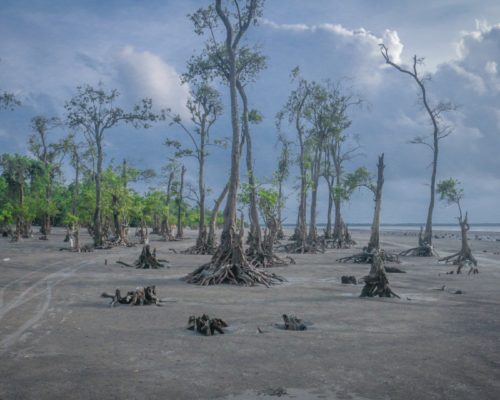The Growing Burden of Climate, Water and Energy Crises on Women
Photo: Sreeyash Lohiya / Shutterstock.com
07 March 2023 – by Shafiqul Alam and Vibhuti Garg
Women in rural areas of countries like Bangladesh and India are enmeshed in household activities, from fetching water to arranging firewood for cooking etc., in addition to their childbearing role. Therefore, they are burdened with disproportionate pressure in their routine work at home. They also feel the impacts of climate change more than their male counterparts.
For instance, the two climate change-induced back-to-back cyclones, namely SIDR and Aila, in 2007 and 2009, devastated coastal areas of Bangladesh, home to 20 million people. Among other things, increasing levels of salinity intrusion made sweet water pockets unavailable near many villages. As a result, women in coastal Bangladesh spend more than an hour fetching water from afar, which takes a heavy toll on their health.
Often schoolgirls support their mothers in collecting water, which disrupts their education. In contrast, males usually avoid arduous activities like securing water for daily household needs.
India is also a water-stressed nation and faces challenges as the weather pattern changes and the frequency of droughts increases. Like Bangladesh, women in India are responsible for fetching water to fulfil their family’s needs. They reportedly walk miles to reach their nearest water collection point.
When it comes to cooking, many people in rural Bangladesh cook in traditional and inefficient stoves that cause severe indoor air pollution. As women do the cooking, they are the ones who bear the heaviest brunt of indoor air pollution linked to inefficient cookstoves. A study delineates similar results in the case of India, where women from rural areas are exposed to indoor air pollution as they spend a good amount of time cooking with unclean or solid fuels at their homes.
Additionally, women are often engaged in the laborious job of gathering energy resources for household cooking.
Notably, 2.4 billion people across the globe still use inefficient cooking systems and polluting fuels. The World Health Organization (WHO) blames inefficient technologies and polluting fuels as major contributors to diseases and deaths of women and children in low and middle-income countries. While access to clean cooking has increased compared to the base year of 2010, governments need to front-load more efforts to achieve the target of the clean cooking component of Sustainable Development Goal-7 by 2030.
In this regard, Bangladesh and India have undertaken programmes to support the transition to clean cooking. For instance, Bangladesh has been implementing an improved cookstoves program for efficient fuel combustion to reduce smoke and particulate emissions, thus allowing women to experience a cleaner indoor environment. Liquefied Petroleum Gas (LPG)-based cook stoves are also increasing.
Meanwhile, India considers electric cooking a cleaner alternative to the current practice. In 2016, India launched the Ujjwala scheme with an initial target to provide access to LPG to 50 million female members of below-the-poverty-line households that otherwise would use polluting cooking fuels. LPG connections under the scheme reached more than 93 million on 1 July 2022.
While Ujjwala addressed the initial barrier of LPG connection and gas stove, the high cost of refilling the gas cylinder remains a major obstacle.
Both countries are also spearheading measures to address the water crisis. Bangladesh, supported by the Green Climate Fund (GCF) and United Nations Development Programme (UNDP), is implementing rainwater harvesting projects to provide access to water at the doorsteps of the climate change-affected coastal people.
Communities in India are taking steps to conserve groundwater amid the depletion of the water table.
Despite all these initiatives, women still find themselves in disproportionately disadvantaged positions compared to their male counterparts, particularly in rural Bangladesh and India. This is because their roles are distinct from males and arduous and painstaking. As countries strive for equal opportunities and to make the world a better place, they must accelerate efforts for clean solutions.
Vibhuti Garg is an energy economist and IEEFA Director for South Asia, bringing with her over 17 years of experience in the field. Vibhuti’s focus is on promoting sustainable development through influencing policy intervention on energy pricing, adoption of new technologies, subsidy reforms, enhancing clean energy access and access to capital and private participation in various areas of the energy sector.
About IEEFA
The IEEFA is an independent think tank that examines issues related to energy markets, trends and policies.
Disclaimer: The views and opinions expressed in this article are those of the author and do not necessarily reflect the official policy or position of Energy Tracker Asia.





